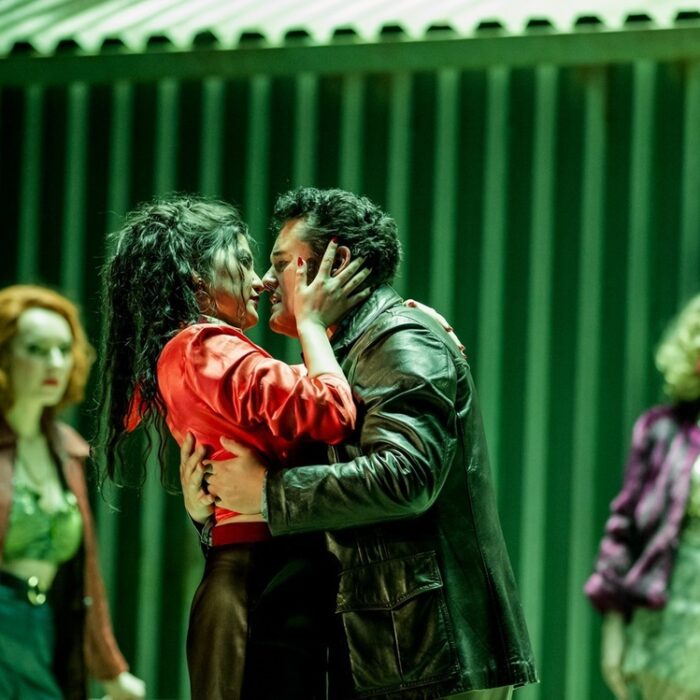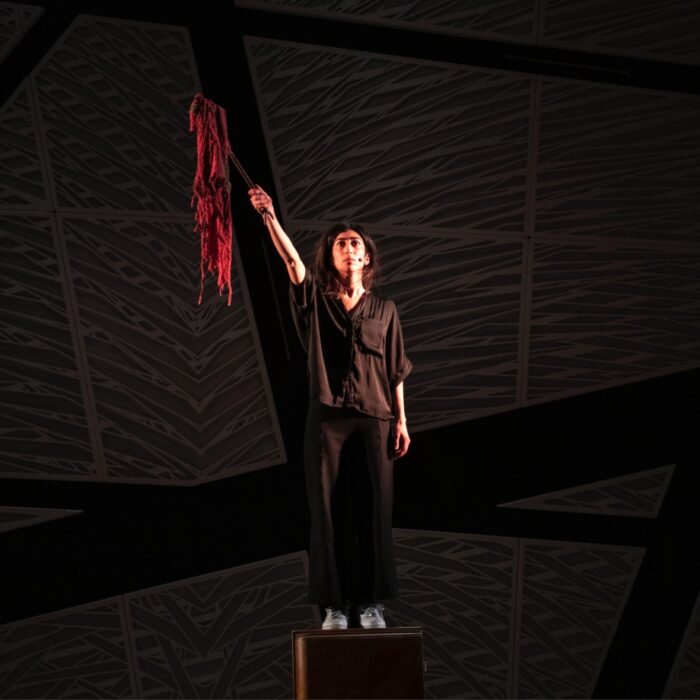
CD Review: Lawrence Brownlee’s ‘Rising’
By Bob Dieschburg“The poem with this music is complete.” The final line to composer Shawn E. Okpebholo’s “Romance” reveals, in essence, the method behind Lawrence Brownlee and pianist Kevin J. Miller’s newest release, “Rising,” on Warner Classics: Setting poetry from the Harlem Renaissance to song.
With its 29 tracks, the album includes texts from writers such as Langston Hughes, Alice Dunbar Nelson, and Claude McKay; in the decades before the Second World War, they were instrumental to the development of a Pan-African cultural movement centered in the New York district of Harlem.
Thematically, however, it soon went beyond literature and music (think jazz poetry, for instance) to span the civic and political as much as the religious lives of African-Americans in the wake of the so-called Great Migration to the Northern United States. Institutional racism was addressed, in conjunction with the issue of Black identity, both cultural and social, in a white-dominated world.
Brownlee revives this heritage by recording, among others, new commissions by six currently active composers of African-American descent. Brandon Spencer, Jasmine Barnes, Damien Sneed, Jeremiah Evans, Joel Thompson, and Shawn E. Okpebholo are all consummate melodists, yet stylistically so diverse as to reflect, ex post, the various artistic facets of the Harlem Renaissance.
The Harlem Renaissance Revived
This diversity translates as a number of technical challenges that Brownlee, as a Bel canto specialist, with his nimble, warm-timbered voice, is set to overcome. For instance, in Joel Thompson’s “My people,” based on the eponymous poem by Langston Hughes, the syncopated rhythms of jazz music alternate with wild coloratura runs on “singers” and “dancers.” Not to mention the onomatopoeic repetition of “Ha! Ha! Ha!” which Brownlee sings in full stylistic control.
With Damien Sneed’s “To America,” on the other hand, we are steeped, musically, in an established tradition of American art songs in the vein of Barber, Copland, Bernstein, or Florence Price who, for the 70th anniversary of her death, gets long-deserved recognition.
Its harmonic language is, in essence, not so different from the European Lied; think Hugo Wolf. Yet, the rising vocal line and variations in the rhythm convey a je ne sais quoi that seamlessly blends with the compositions of Sneed’s American predecessors as much as influences like gospel music or even jazz.
The same goes for Jeremiah Evans whose “April song,” to the words of Langston Hughes, is not hard to imagine as a 21st-century pendant to William Grant Still’s “Song for the lonely.” Both mirroring, in their own musical vocabulary, the falling of rain. The tessitura here as in most other tracks on “Rising” is generally high and well-suited to the rich clarion-sound of Brownlee’s upper register.
The latter sounds all the more impressive, thanks to excellent engineering with which the album was produced. Far from showing the tiniest flaw or insecurity, Brownlee seems to relish every moment. He delivers with steadfast ease the trickiest passages, including a series of very exposed melismas in Brandon Spencer’s “Dance of love.”
Occasionally, Brownlee is pushed into the falsetto range, such as in Jasmine Barnes’ “Peace,” a hauntingly intricate hymn to universal reconciliation composed to the 1922 poem of the same title by Georgia Douglas Johnson. The transition from falsetto to the sustained tones of our tenor’s middle register and back is expressive to the point of eliciting, in the wake of Rubini, a proverbial smile in the voice.
Among the composers represented, Shawn E. Okpebholo must rank as the most experimental one. The melody appears fragmented and the piano accompaniment is vaguely reminiscent of Messiaen’s fascination with birdsong. It strikes me as a tour de force, which again proves how comfortable Brownlee is in territory unaccustomed to Bel canto and veering, as it is, towards atonality.
A Celebration of Diversity
The program is respectively rounded off by Margaret Bonds and Robert Owens’ cycles of songs. Bonds’ four “Songs of the seasons” are quasi-impressionistic meditations on the passage of time ending, so to speak, on a high note. In “Summer storm,” Brownlee’s voice rings to “the wonder of being in love with you.”
On the other hand, Robert Owens’ “Desire” and “Silver rain” return to a host of musical influences with delightful rhythmic variations. In pieces like “Carolina cabin” (which, before Owens, had been set to music by Jean Berger) the writing is fast, witful, and easily accessible. Yet, most of all, there transpires an unmistakable joie de vivre that runs like a motto to Brownlee’s album.
“Rising” is a powerful celebration of the cultural riches of the Harlem Renaissance and its lineage, from the likes of Langston Hughes and James Weldon Johnson, to contemporary artists of African-American descent. Lawrence Brownlee and Kevin J. Miller dedicate their utmost care to making their voices heard.
My only regret is that the booklet, at least in the version available online, is not more substantive. I would gladly take the chance of diving deeper into the lavish soundscapes of “Rising” and beyond.


